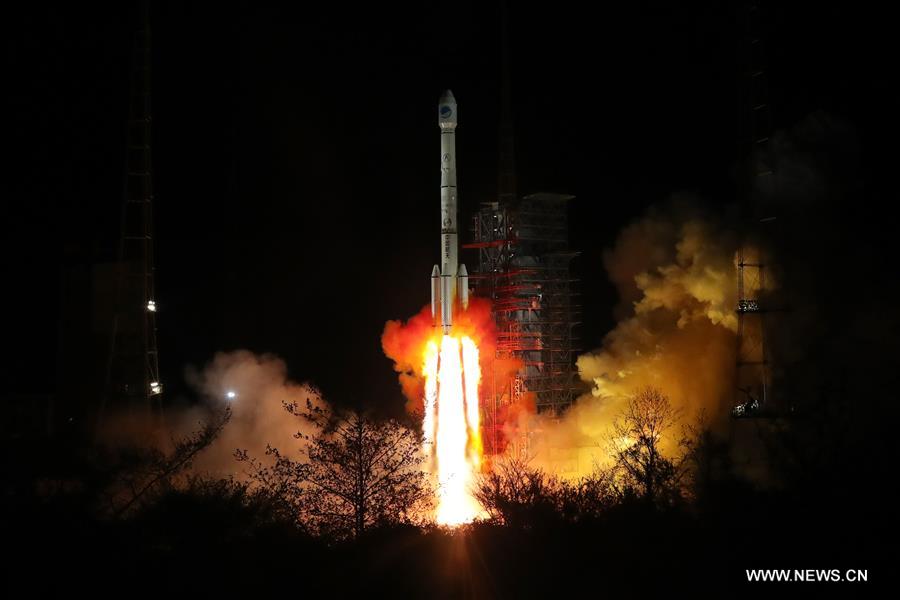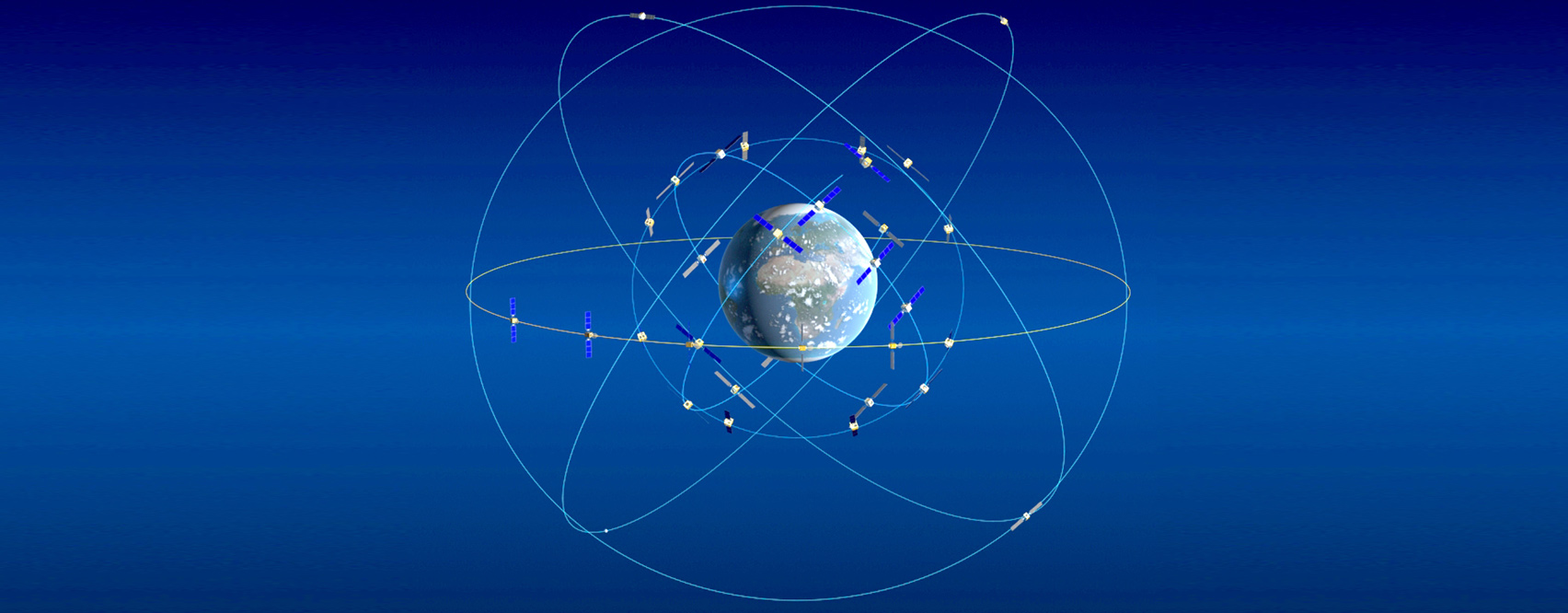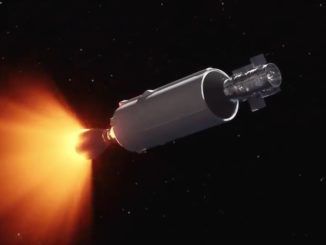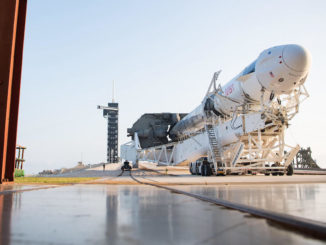
Two Chinese Beidou navigation satellites launched Thursday, growing the country’s home-grown space-based GPS network more than 13,000 miles above Earth.
The twin satellites lifted off at 1756 GMT (1:56 p.m. EDT) Thursday on top of a Long March 3B rocket from the Xichang space center in southwestern China’s Sichuan province, the state-run Xinhua news agency reported.
Four liquid-fueled boosters and a core stage, all fed by hydrazine and nitrogen tetroxide propellants, fired the Long March 3B rocket off its launch pad on a southeasterly track with around 1.3 million pounds of thrust at 1:56 a.m. Friday, Beijing time.
After shedding the boosters and first stage, the Long March 3B’s second stage fired, then a third stage consuming more environmentally-friendly liquid hydrogen and liquid oxygen ignited to place the Beidou satellites and a Yuanzheng upper stage into a preliminary orbit.
Acting as a maneuverable space tug, the Yuanzheng upper stage steered the Beidou satellites into a circular orbit around 13,376 miles (21,528 kilometers) above Earth, inclined at an angle of 55 degrees to the equator. The two satellites separated from the Yuanzheng upper stage more than three hours after liftoff.
The Beidou program’s official government website said the satellites were placed into the planned orbit, and will begin testing before entering operational service. The satellites launched Thursday are the seventh and eighth members of China’s third-generation Beidou fleet, joining six similar craft launched since early November.
Named for the Chinese word for the Big Dipper constellation, the Beidou constellation achieved an initial operating capability with coverage over the Asia-Pacific region in 2012. Development of the Beidou program began in 1994.

The first Beidou test satellite launched in 2000. With Thursday’s mission, China has launched 31 Beidou navigation payloads into orbit, but some were test satellites and are no longer operational.
The Beidou network will provide global service by around 2020, Xinhua reported.
When fully deployed, the Beidou fleet will consist of 35 satellites, including 27 spacecraft in medium-Earth orbit, the destination for the payloads launched Thursday.
Eight additional satellites will make up the Beidou constellation in geostationary orbit more than 22,000 miles (nearly 36,000 kilometers) above Earth, including five parked over the equator and three others in inclined orbits that swing between 55 degrees north and south latitude.
The third-generation Beidou satellites, including the ones launch Thursday, carry upgraded atomic clocks to provide more precise position estimates. The clocks provide measurements to calculate the time it takes for a radio signal to pass between the spacecraft and a user on the ground, allowing algorithms to determine the distance between the two, then derive the user’s position on Earth.
Email the author.
Follow Stephen Clark on Twitter: @StephenClark1.



